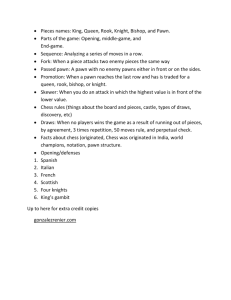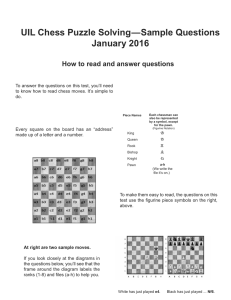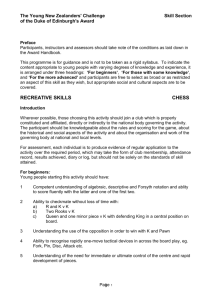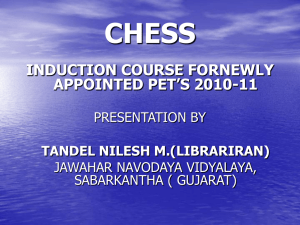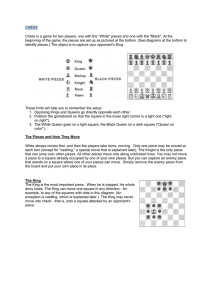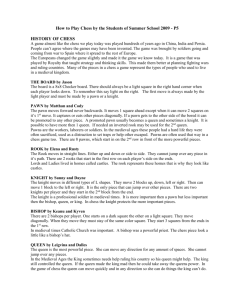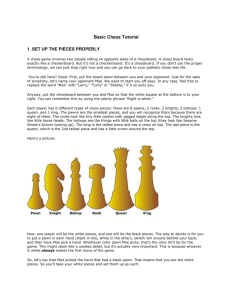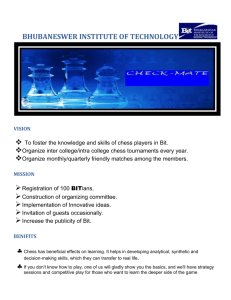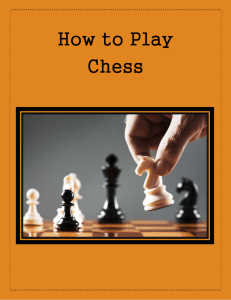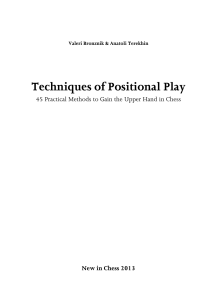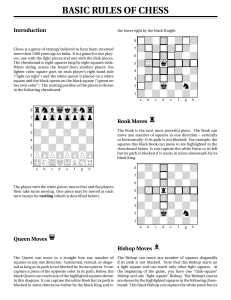Name: Class Period Test #1 1. How many squares are there on a
advertisement
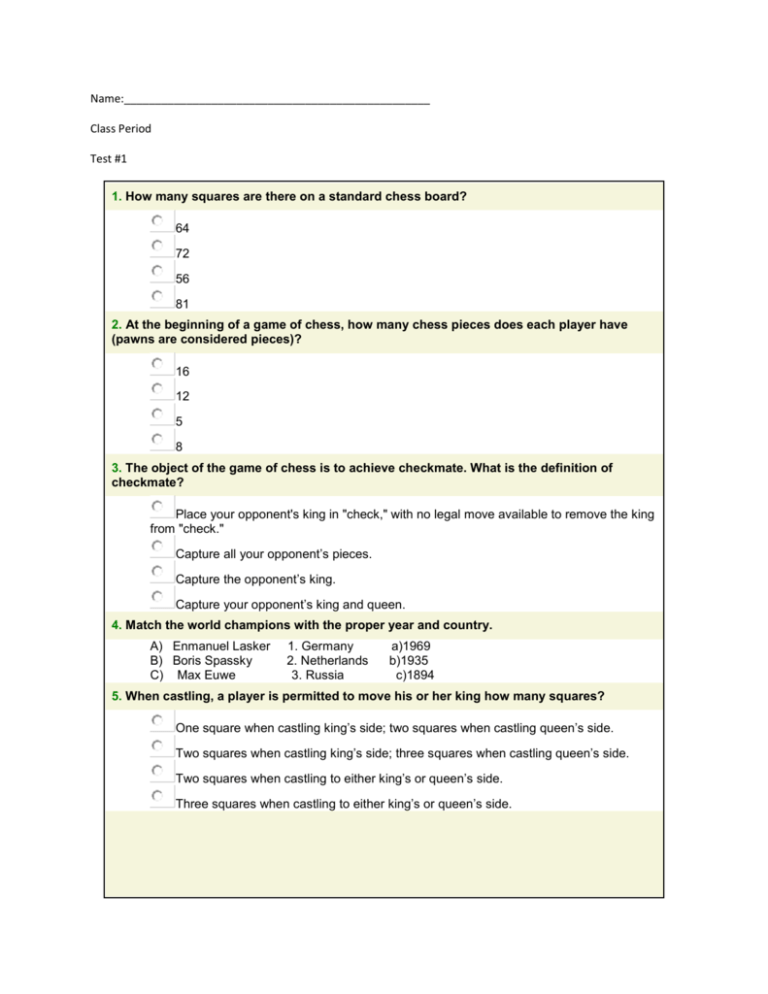
Name:_________________________________________________ Class Period Test #1 1. How many squares are there on a standard chess board? 64 72 56 81 2. At the beginning of a game of chess, how many chess pieces does each player have (pawns are considered pieces)? 16 12 5 8 3. The object of the game of chess is to achieve checkmate. What is the definition of checkmate? Place your opponent's king in "check," with no legal move available to remove the king from "check." Capture all your opponent’s pieces. Capture the opponent’s king. Capture your opponent’s king and queen. 4. Match the world champions with the proper year and country. A) Enmanuel Lasker B) Boris Spassky C) Max Euwe 1. Germany 2. Netherlands 3. Russia a)1969 b)1935 c)1894 5. When castling, a player is permitted to move his or her king how many squares? One square when castling king’s side; two squares when castling queen’s side. Two squares when castling king’s side; three squares when castling queen’s side. Two squares when castling to either king’s or queen’s side. Three squares when castling to either king’s or queen’s side. 6. Under what conditions may a player not castle his/her king for the time being? All the listed choices. The king is in "check." A piece occupies a square between the king and the rook. A square that the king crosses over, or on which it will land, exposes it to "check." 7. Which is the only chess piece that can legally jump over a piece of the same color or an opponent’s piece? knight queen pawn rook 8. When a player puts his or her opponent’s king in danger of capture, he or she MUST declare "check." True False 9. Under which condition(s) may a draw be declared? The only two pieces left on the board are each player’s king. All the listed choices. Each player makes 50 consecutive moves without moving a pawn or capturing a piece. The king of the player having the move is not in check, but the player has no legal moves. 10. When a player’s pawn reaches the last rank, it may or may not be promoted, at the player’s discretion. True False 11. A chess game can be conveniently divided into three phases, commonly known as: opening, middle game, endgame beginning, battle phase, end game beginning, middle game, checkmate opening, middle game, conclusion 12. During one of the earlier phases of a game, what is considered the most correct strategy for winning? Set up a strong defense. Go for a quick checkmate. Gain control of the center of the board. Capture or neutralize the opponent’s queen. 13. Black’s king is positioned on d7, and a black rook occupies h7. There are no pieces on e7, f7, or g7. White moves a rook to a7 and puts the black king in check. Black cannot remove the check by capturing or blocking White's rook. This is an example of which chess tactic? pin skewer double attack discovered check 14. A series of moves designed to achieve a strategic or tactical goal on the chess board is known as a(n): sequence combination progression succession 15. White moves his knight to b5, thereby simultaneously attacking a black bishop on d6 and the black queen on c7. What chess tactic has White employed? discovered attack knight fork skewer x-ray 16. Black has a pawn on a2, a bishop on f7, and his king on d4. White has a pawn on h7, a knight on d6, and her king on f3. There are no other pieces on the board. Black moves his pawn to a1 and promotes it to a queen. What is White’s best move? Kf4 Nb5+ NxB h8=Q+ 17. A pawn that has no enemy pawn in front of it, either on its own file or on an adjacent file, is known as a(n): en passant pawn passed pawn backwards pawn doubled pawn 18. On the very first move of a game, what are the only pieces on the chess board that can be moved? knights and queen pawns and queen pawns and knights knights and bishops 19. Both White and Black are left with only their king and one bishop on the board. Both bishops travel on white diagonals. Is checkmate possible? True False 20. Name three chess openings or defenses. 1. _______________ 2. _______________ 3. _______________
